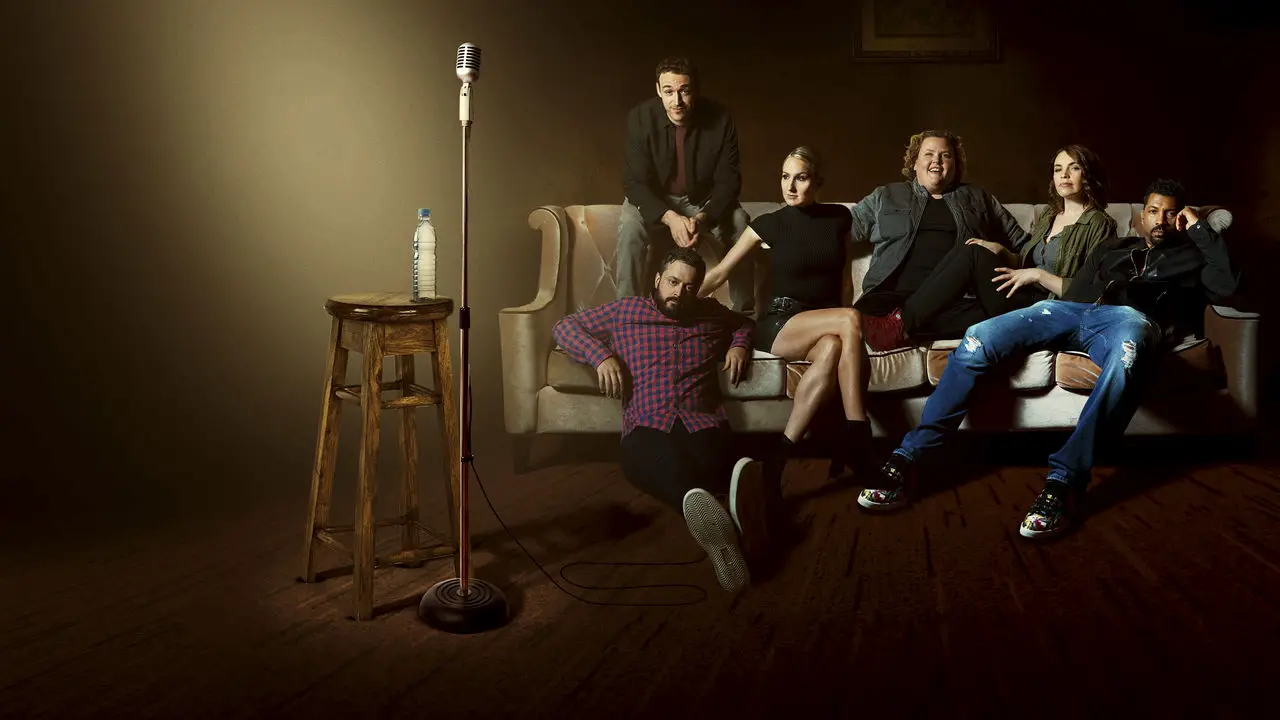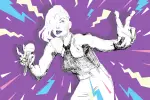Netflix does a good job of creating and sharing raw, original talent with its millions of subscribers. They boast an impressive collection of new releases, cult classics and off-beat horror flicks, but the true treasures lie buried within the Stand-Up Comedy tab.
Netflix has spent the past few years growing their comedy genre with original specials such as “Louis C.K. 2017,” “Trevor Noah: Afraid of the Dark” and “Iliza: Confirmed Kills.” They showcase a variety of stand-ups, representing a number of male and female comics with different voices and diverse material. However, some of the specials tend to drag in the middle and seem thirty minutes too long. “The Standups” is Netflix’s answer to this problem and its next strategic move in competing with Comedy Central’s “The Half Hour.” Season 1 consists of six episodes, none longer than thirty minutes, giving each comic their delicious spotlight moment without time for their jokes to spoil and sour audiences’ taste buds.
First up is Nate Bargatze, a guy with a wild sense of humor and an impossible last name. Bargatze is a true American comedian from Old Hickory, Tennessee, and is best known for his Comedy Central special and multiple appearances on many late-night comedy shows. To tell you the truth, I had no fucking clue who this guy was when I started watching his episode. To tell you even more truth, I still don’t really know who he is, I just added the sentence above to validate my argument for why he’s a great comic. He’s pretty unknown, but starts the show on a remarkably strong note with his deadpan demeanor and light material. His jokes about prison inmates, Leonardo DiCaprio’s Twitter and entitled Walmart shopping experiences are hilarious and the strongest moments throughout the episode.
I sometimes have a problem with female comics, as some can play the “woman card” way too much, but Fortune Feimster deals out her comedy just right. She is straightforward about her sexuality, saying, “I love being a lesbian; I’m good at it,” without being overbearing or letting it consume her entire monologue. Feimster’s comedy style follows the pattern set by Bargatze of laid-back, well-written jokes with quick punchlines and zero nervous energy. Feimster proves light comedy can be just as dense, adding commentary on LGBT rights, gender-neutral bathrooms and our commander in chief. She takes a little political stab at President Trump and his administration, and quickly follows it up with, “Ooh, my one political joke.”
One thing that amazes me about comics is how they seem to have a sixth sense when it comes to their audiences. In addition to memorizing their material, they tend to know exactly when a joke will land and when it will flop. They can sense audiences’ joy, hatred, discomfort and delirium with only a microphone stand and a few feet between themselves and the crowd.
For Deon Cole, it’s as if his comedy Spidey senses are dialed to eleven. Instead of grabbing the mic and launching into his set, Cole slowly approaches the stand, pulls out a crumpled piece of notebook paper and says, “What I’m going to do tonight is, I’m going to try out some jokes. Do some jokes. Hopefully they work, and if they don’t, I’m never going to see y’all again so it don’t matter.” He appears to be simply reading jokes off of a list, crossing them out when they fail to get a laugh (which isn’t most of them) and circling them when they warrant a chuckle. Cole threw in plenty of race jokes, dating jokes and random one-liners that made me think, “Holy fuck, who is this guy and is he secretly a murderer?” But, I give Cole credit and major props for sticking to his “grocery-list” style of joke telling till the very end.
Nikki Glaser isn’t my favorite episode of the season, but she did bring some fire and much-needed release to the stage. After a trail of deadpan comics, Glaser’s easy-going attitude is refreshing, as she seems to enjoy performing the jokes as much, if not more than, the audience enjoys hearing them. From her pathetic sex life, hopeless string of past romantic encounters and pent-up relationship farts, Glaser reminds us to laugh at ourselves at least a little every day.

I used to think I was “the funny friend”…until I met Beth Stelling. Stelling is the kind of comic that makes you take a look at yourself in the mirror and go, “Wow, you actually thought you were funny? You’re nothing but an empty potato-chip bag of outdated references and stolen punchlines.” She is full of quick wit, sharp jabs and relatable humor, and prides herself on her strong comedic presence. Despite her talent, she acknowledges, “Nothing makes a dick go softer than a funny woman,” alluding to the fact that men like to be the funny ones in the relationship. She’s open and unapologetic without riding high on her own comedic fumes and drowning out the audience surrounding her. Steller isn’t a total newbie; she’s performed multiple times on “Jimmy Kimmel Live,” “Conan” and her half hour Comedy Central special was named one of the “10 Best Stand-up Specials of 2015.”
Dan Soder closes the season with a performance slightly better than his featured spot on MTV’s “Guy Code.” Soder is like a less-successful Jason Segel, but who smokes more pot and has a cuter, man-boy demeanor. He exhibits extreme, almost aggressive, confidence as he rambles through the pathetic, confusing chaos that is his life. I was disappointed in Soder; his bit parts on “Inside Amy Schumer” are always hilarious, but his monologue felt like one big comic fart about a tragic ex-girlfriend and an adult roommate. We get it: You’re an adult but you live like a kid. I guess every comic has their shtick and Soder’s happens to be being a weepy, overly-expressive man child.
Although ending on a bittersweet performance, “The Standups” as a whole is wildly funny and satisfies my comedic sweet tooth. Each comedian brought a unique style to the stage while finding bits and pieces of relatable comedy. I was skeptical about the show at first, given the length of Netflix’s previous comedy specials, but was pleasantly surprised as each episode held my attention till the end…even Soder’s crybaby comedy.
















